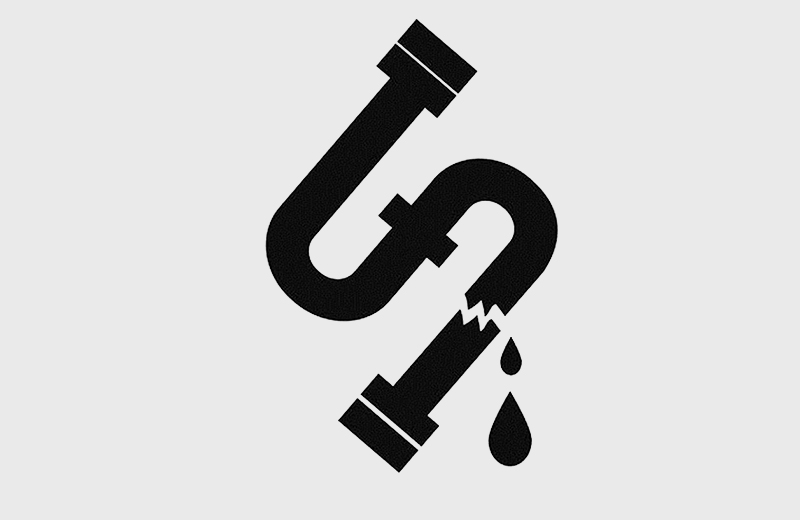Featured in The Hindu
Urban India must focus on more than toilets to address sanitation woes.
Yesterday, November 19, 2017, was World Toilet Day, with the theme ‘Wastewater and Faecal Sludge Management’. In India, there is greater awareness about the importance of using toilets, largely due to the high profile, flagship programme Swachh Bharat Mission launched in 2014, so much so that even Bollywood capitalised on this topic in the recent film Akshay Kumar starrer, Toilet — Ek Prem Katha, where a marriage is saved thanks to toilets. However, in real life, the sanitation story only begins with toilets, something clearly stated by the targets under the 2015 Sustainable Development Goals. These targets are not just about ‘toilets’ but also suggest improvements to the entire cycle of sanitation, which certainly begins with toilets but has to end with safe waste disposal.
Four stage cycle
Sanitation is intrinsically linked to health, and unless faecal waste is treated properly and disposed of safely, it will find its way back into our bodies and make us sick either by contaminating our sources of drinking water or getting into the food chain. The full cycle of sanitation has four stages: access to toilets; safe containment; conveyance either through the sewerage network or de-sludging trucks, and treatment and disposal. The faecal waste needs to be handled safely at each of these stages in order to gain public health benefits.
As recognised in the last decade, urban India faces considerable gaps along the full cycle of sanitation. One probable reason for these deficits was the belief that sewerage and sewage treatment systems could be built in all cities. Sewerage refers to fully sealed pipes, that are underground, and must not be confused with open storm water drains that are supposed to carry only rainwater. After decades of investment, India has managed to connect only a little more than a third of its urban households, most of which are located in metropolitan cities, to sewerage systems. This is because sewerage systems and sewage treatment plants (STPs) — a preferred system in most western countries — are not only expensive but are also complicated to maintain.
An alternative to sewerage systems is something known as on-site systems. Septic tanks and pit latrines, which are prevalent in many Indian households, fall into this category. If these systems are designed, constructed and managed properly, they can be perfectly safe options. Safe containment, collection and treatment is known as septage management or faecal sludge management (FSM), and is being increasingly recognised by the Government of India as a viable option.
Multi-stage challenges
Though viable, there are several challenges for FSM across all stages.
Emerging evidence from across the country indicates that on-site systems are not constructed properly. While the designs of ‘septic’ tanks and leach pits have been set out in standards issued in government documents, houseowners and masons are often not aware of these. The most severe consequence of these poorly designed pits is the potential contamination of groundwater. In addition, they are not de-sludged at regular intervals. Faecal waste needs to be transported using de-sludging vehicles (and not manually) but only some States, Tamil Nadu for example, have these vehicles. Once collected, the waste needs to treated properly to ensure that it does not land up in our lakes and rivers. There aren’t enough treatment facilities to guarantee proper treatment of the sludge.
A way forward
After the National Urban Sanitation Policy (NUSP) in 2008, a national policy on Faecal Sludge and Septage Management (FSSM) was released earlier this year. Tamil Nadu, Maharashtra and Odisha have released State-wide septage management guidelines and taken concrete steps to execute these policies. While de-sludging vehicles and robust informal markets exist for de-sludging services in some States, others are either procuring vehicles for their urban local bodies or encouraging private players to get into this.
Tamil Nadu has decided to utilise existing infrastructure, namely STPs, and allowed the co-treatment of faecal sludge in these facilities. It has also put in additional infrastructure called decanting stations at some pumping stations to make it easier for de-sludging vehicles to deposit their waste. Devanahalli in Bengaluru has a dedicated Faecal Sludge Treatment Plant (FSTP) operational since 2015. Others of varying sizes are either under construction or already running in Kochi (Kerala), Tiruchi (Tamil Nadu) and as far as Leh. Thus, there are many promising steps being taken, but much more needs to be done if we are to truly become an open-defecation free nation.
Here are some suggestions that both the government and us, citizens, can work towards.
Raising awareness about correct design and construction practices of on-site systems (new and legacy) will perhaps remain the biggest hurdle in the years to come. But, urban local bodies and State governments could start by ensuring that the larger containment systems such as community toilets and public toilets are properly constructed and managed. In addition, permission could be granted to new buildings, especially large apartment complexes only when the applicants show proper septage construction designs. The safety of sanitary workers who clean tanks and pits must be ensured by enforcing occupational safety precautions and the use of personal protective equipment as set out in the law. The last two suggestions are actions for us as citizens. As home-owners and residents, our tanks and pits must be emptied regularly, thereby preventing leaks and overflow. We must ask our governments to invest in creating treatment facilities that our cities can afford.
Let us move beyond the cute poop emojis on our smartphones and make this an acceptable discussion topic in the drawing room. Maybe the biggest victory will come when citizens realise that the focus needs to be on more than just toilets.
Kavita Wankhade works at the Indian Institute for Human Settlements, Bangalore, and is part of the Tamil Nadu Urban Sanitation Support Programme (TNUSSP) in Chennai. The views expressed are personal



Leave A Comment
You must be logged in to post a comment.